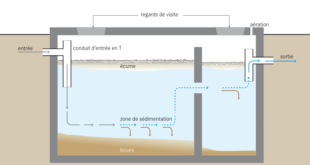Licensed and bonded are not just selling points for potential clients. Having proper licenses and bonds are also required to comply with the law. Here is a high level California contractor license bond guide. We’ll cover every major issue from the application process to your options for securing the bond needed to be approved for your contractor’s license.
Reciprocal Licensing
California will recognize a contractor’s license from Arizona, Utah or Nevada if it is active and has been in good standing for at least five years. There are additional requirements, but you’ll need to learn more from the California Contractors State License Board. If this doesn’t apply to you, you may have to get a licensed with the state of California.
When Licenses Are Required
California state law says that any project valued at over $500 including both materials and all labor requires a contractor’s license. The labor component includes both your labor and labor by contractors, subcontractors and specialty contractors. However, your laborers and subcontractors often don’t have to have a license themselves.
The Application Process
Applicants can apply by submitting an Application for Original Contractor License, state form 13A-1. You must also fulfill several key requirements. You are required to have a valid Social Security Number. You, your partners, your business’ owner and managers must submit to a Department of Justice and FBI background check. If you have a criminal record, this doesn’t not mean you cannot work as a contractor. However, you’ll have to provide a Disclosure Statement Regarding Criminal Plea/Conviction. Each plea or conviction is covered by its own, fully filled out form. You must pay for the DOJ processing fee and FBI fee; these fees vary based on where you’re applying.
You or your business must have at least $2500 in working capital. Either a copy of your Workers’ Compensation Insurance form or an exemption from Worker’s Comp form is required with your application.
You’ll need to prove that you have journeyman level experience. You’ll have to submit a form for each completed construction project. This is used along with the Certification of Work Experience that shows you have worked at the journeyman level.
The application and required documents are sent into the California State License Board. If approved, then you can sit for your examination if you aren’t exempted from it.
The Examinations for Potential California Contractors
Not everyone needs to take the contractor licensing examination. If you’ve passed all legal and trade examinations to be licensed in your field, such as becoming a licensed electrician, and you’ve been in good standing for at least five years, you generally won’t have to take the exam. Everyone else has to pass the contractor’s licensing exam with a score of at least 67 percent. There are license schools that can prepare you for the exam if you don’t want to study on your own.
After you pass the licensure exam, then you have to take the asbestos open book exam. You complete the verification form and send it in with your bond verification and license fee notice.
The Rules for Contractor Licensing Bonds
Though you may have passed the tests and paid the necessary fees, one more step is required to secure your contractor license. And that step is obtaining a contractor license bond. You can give the CSLB a cash deposit to cover the license bond amount. You can secure a contractor license bond through contractorbond.org. In some cases, an additional Bond of Qualifying Individual is necessary.
As of the start of 2019, the state board no longer accepts savings account passbooks, certificates of funds, investment certificates or certificates of deposits in place of licensee’s required bonds. This means contractor bonds really are the only way to go.
How Licenses Are Maintained
Suppose you’ve passed the test and been issued a state contractor’s license. Know that you have to renew the license periodically, and you have to show that you have a contractor’s bond in place to do so. If your contractor’s license is inactive, you have to show the bond is in place before the license can be reactivated.
 World inside pictures Collect and share the best ideas that make our life easier
World inside pictures Collect and share the best ideas that make our life easier









